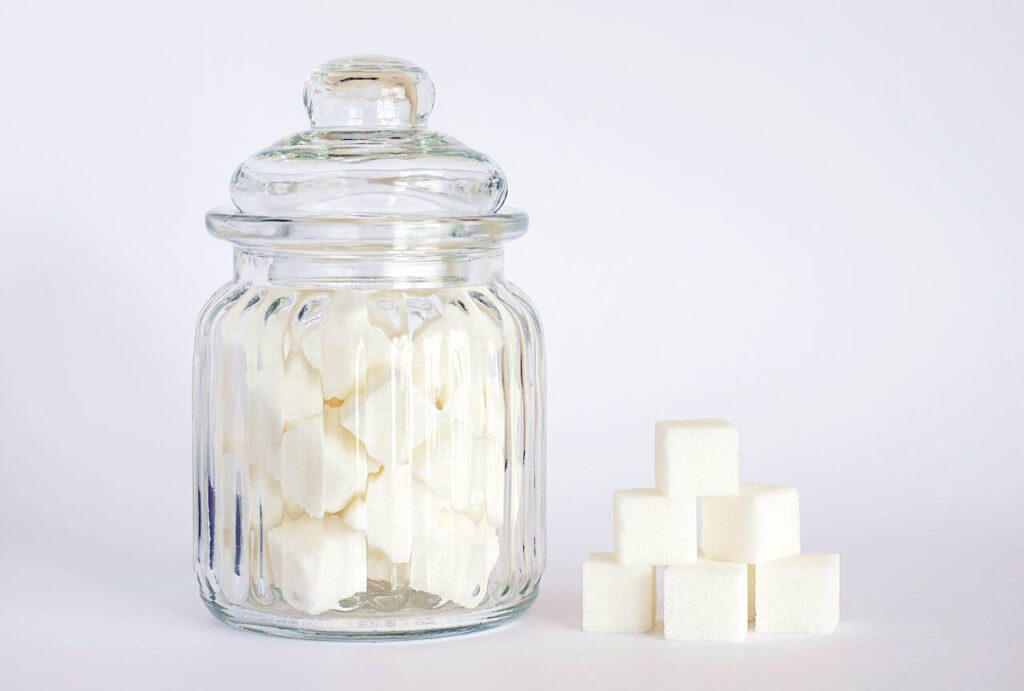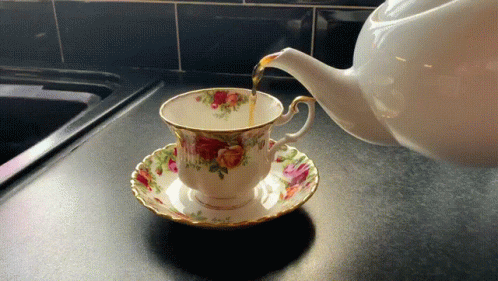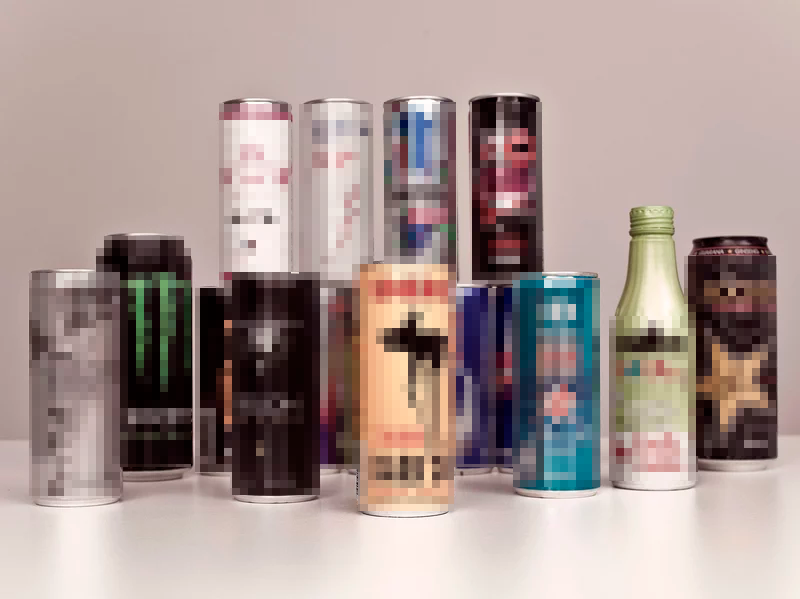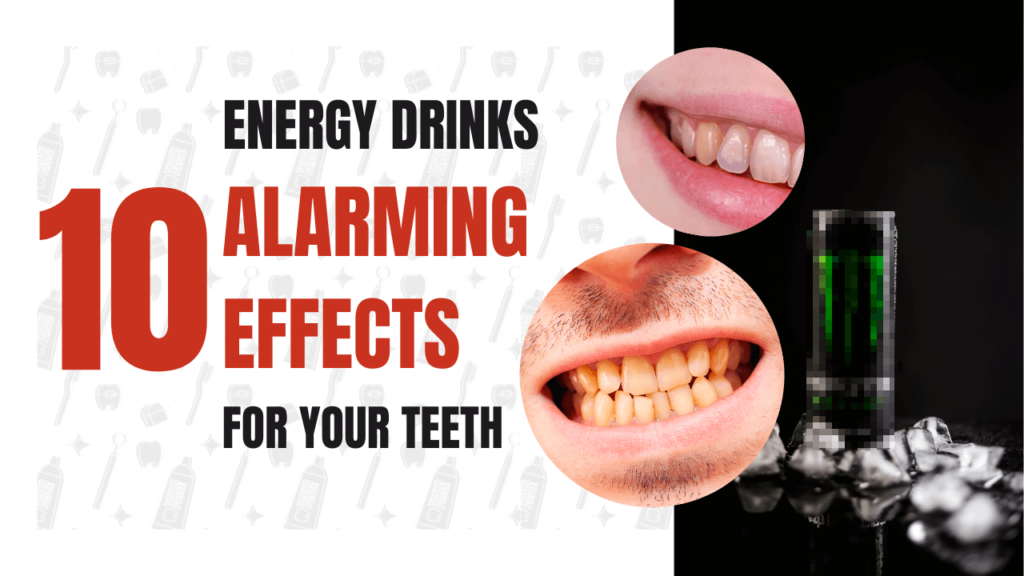Energy drinks have gained immense popularity in the United States, offering a quick and convenient energy boost. However, what often goes unnoticed are the potential adverse effects these beverages can have on your dental health. In this comprehensive article, we will delve into the profound consequences of energy drinks on your oral well-being.
Exploring the Influence of Energy Drinks on Your Dental Health
In our fast-paced society, energy drinks have emerged as a top choice for many Americans seeking a rapid pick-me-up. While these beverages deliver that much-needed energy jolt, their impact on dental health is a subject of escalating concern.
Energy drinks are readily available on store shelves, marketed as the perfect solution for combatting fatigue and staying alert. These beverages particularly appeal to young adults, college students, and individuals leading demanding lifestyles. Nevertheless, it’s imperative to comprehend that while energy drinks offer a temporary surge in vitality, their effects on dental health can be long-lasting.
Prevalence of Energy Drink Use

Energy drinks have seen a significant surge in popularity across the United States. It’s crucial to comprehend just how frequently Americans are consuming these drinks. This section investigates the prevalence of energy drink consumption, with a focus on adults aged 18 to 34, providing insights into the current state of consumption in the nation.
1.- Sugar Content
The Challenge Posed by Excessive Sugar Levels in Certain Energy Drinks
One of the most disconcerting aspects of these beverages is their alarmingly high sugar content. Some of them contain an excessive amount of sugar, far surpassing the recommended daily intake. It’s not uncommon to find energy drinks with a staggering 55 grams or more of sugar in a single serving. Such elevated sugar intake can have profound implications for your overall health, especially your dental well-being.
With the increasing popularity of these beverages, there has been a surge in the production of caffeine-free alternatives. These caffeine-free energy drinks often incorporate alternative sweeteners, with sucralose being a common choice. While these sugar substitutes might appear to be a healthier option, they too can affect dental health.
2.- Erosion of Tooth Enamel
The Swift Deterioration of Tooth Enamel Due to Energy Drinks
One concerning aspect of these beverages is the rapid erosion of tooth enamel. Tooth enamel, the protective outer layer of your teeth, plays a crucial role in preserving your dental health. Research indicates that dental enamel can deteriorate significantly after a brief period of energy drink consumption.
The erosive impact of these drinks on tooth enamel is both swift and substantial. Enamel erosion can result in heightened tooth sensitivity, making it uncomfortable to consume hot or cold foods and beverages. Moreover, it can induce tooth pain and render your teeth more susceptible to decay.
3.- Acidic Nature
Another significant facet of these beverages is their high acidity. Elevated acidity levels can have detrimental effects on dental health and may contribute to tooth enamel erosion. The acidic components in these drinks can erode the protective enamel layer, rendering your teeth more vulnerable to damage and decay.
The high acidity in these beverages predominantly arises from their ingredients, including citric acid and phosphoric acid. These acids not only affect your teeth but can also harm the soft tissues within your mouth. Over time, the cumulative damage can be considerable.
4.- Dental Consequences
How Energy Drinks Contribute to Dental Cavities Through Sugar Content
The association between sugar consumption in these beverages and dental cavities is a major concern. The sugar in these beverages serves as a food source for harmful bacteria in your mouth. These bacteria, when fed with sugar, produce acids that attack tooth enamel, ultimately leading to the formation of cavities.
The connection between sugar and cavities is well-established, and these drinks serve as a potent source of sugar that can fuel this process. Furthermore, if you frequently consume these drinks without adhering to proper oral hygiene practices, the risk of developing cavities significantly increases.
Recommendations

Given the potential risks associated with these beverages, it’s imperative to consider strategies for reducing their consumption and safeguarding your oral health. Here are some practical recommendations:
1.- Consumption Limitation
The most effective approach to protect your dental health is to limit your consumption of these beverages. Decreasing the frequency and quantity of these drinks can substantially decrease your risk of dental issues.
2.- Selection of Alternatives
Rather than relying on these drinks, explore healthier alternatives for sustaining energy levels. Opt for water, herbal teas, or beverages with lower sugar and acidity levels to stay refreshed without compromising your dental health.
3.- Rinsing Practice
After consuming these drinks, consider rinsing your mouth with water. This can help eliminate some of the sugar and acidity from your teeth, thereby mitigating their harmful effects.
4.- Avoid Immediate Tooth Brushing
Following the consumption of these drinks, it is advisable to refrain from brushing your teeth immediately. The acidity in the beverages weakens the enamel, and brushing while it’s in a compromised state can lead to enamel damage. Wait at least 30 minutes before brushing your teeth.
5.- Regular Dental Checkups
Maintain consistent dental checkups to monitor your oral health. Your dentist can identify early signs of dental issues and offer guidance on protecting your teeth and gums effectively.
Conclusion

In conclusion, the widespread consumption of these beverages in the United States has raised concerns about their impact on dental health. Despite offering a rapid energy boost, these drinks can contribute to various dental issues, including tooth enamel erosion, heightened sensitivity, and an increased risk of cavities.
It is vital for Americans to recognize these potential risks and make informed choices regarding their beverage consumption. By reducing the intake of these drinks, considering healthier alternatives, and maintaining good oral hygiene, individuals can safeguard their dental health and enjoy a radiant smile for years to come.



